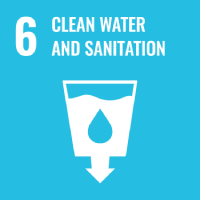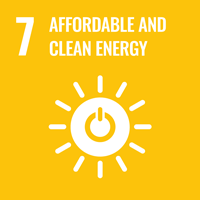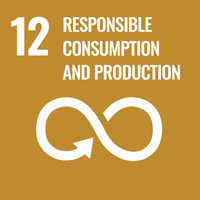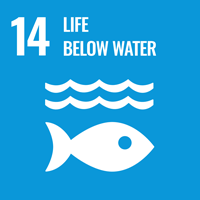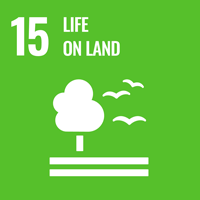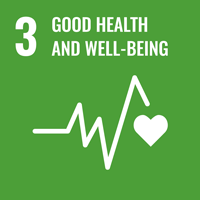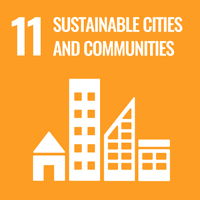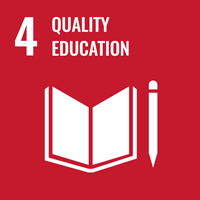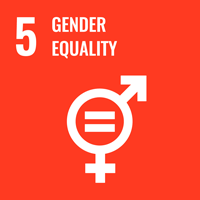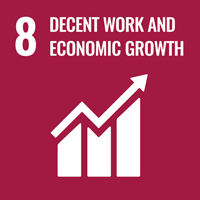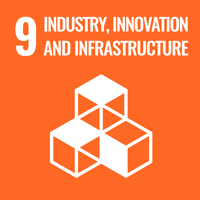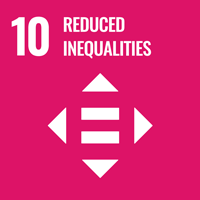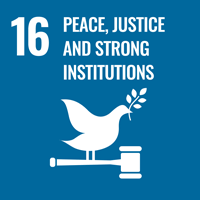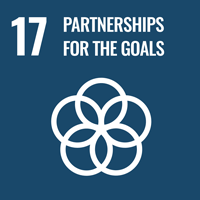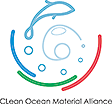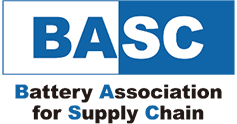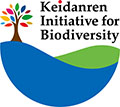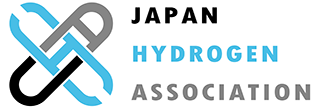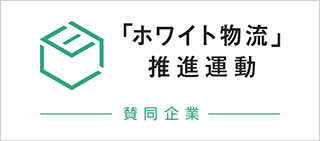Sustainability Management
In 2021, to further promote initiatives aimed at making a sustainable society a reality, we established the Asahi Kasei Group Sustainability Policy.
Asahi Kasei Group Sustainability Policy
The Asahi Kasei Group is contributing to life and living for people around the world. We strive for two mutually reinforcing aspects of sustainability: “contributing to sustainable society” and “sustainable growth of corporate value.” By creating value for “contributing to sustainable society” we seek to gain high earnings that lead to “sustainable growth of corporate value" which enables us to make further contributions in a virtuous cycle.
In order to achieve this, we pursue the optimal corporate governance while practicing the following.
Value creation through contribution to sustainable society
- Resolving issues for People and the Earth through our high value-added businesses (Care for People, Care for Earth)
- Leveraging our strengths of diversity and capability to change for the creation of value (Connect, Communication, Challenge)
Responsible business activities
- Complying with laws/regulations and respecting international standards regarding business activities (Compliance)
- Prioritizing ESH (environment, safety, and health), human rights, and quality assurance throughout all of our activities
- Performing appropriate information disclosure and dialogue with our stakeholders
Empowerment of personnel
- Respecting diversity,equity and inclusion
- Encouraging each employee’s growth, performance, and challenging spirit
Our Group Mission is "contributing to life and living for people around the world," and we have grown by continually contributing to solutions for society. Our commitment has remained constant ever since our founding with the aim of improving people’s standard of living.
Today, discussions about achieving sustainability are taking place around the world. Since sustainability is a challenge that concerns people and the global environment, we believe that the pursuit of “living in health and comfort” and “harmony with the natural environment” as set forth in our Group Vision will lead to sustainability.
"Sustainable growth of corporate value" in conjunction with "contributing to sustainable society" is also important. "Contributing to sustainable society" leads to earnings which enhance the corporate value of the Asahi Kasei Group, which in turn enables further "contributing to sustainable society."
To make this virtuous cycle a reality, we will strive to create value by contributing to a sustainable society, conduct our business activities in a responsible manner, and promote the empowerment of our employees based on our approach of “Care for People, Care for Earth.”
Our ultimate aim is to continue to proactively contribute to the world as a leader in solving challenges for society, carrying on the commitment we have had since the founding of our company.
Message from the Head of Sustainability Strategy Planning
The Asahi Kasei Group aims to achieve two aspects of sustainability in a virtuous cycle: contributing to sustainable society and sustainable growth of corporate value. The basic approach behind this is summarized in our Sustainability Policy. Based on responsible business activities in terms of environmental conservation, process safety, occupational health and safety, quality assurance, respect for human rights, and compliance with laws and regulations, we strive to provide value in our products and services for a sustainable society. The SDGs were adopted at the United Nations Summit in 2015, and we have already passed the halfway mark to the target year of 2030. Although the world's progress has been disrupted by the pandemic, natural disasters, and conflicts and tensions between nations during this time, the goals have not changed. While keeping an eye on the issues facing the world, the Asahi Kasei Group strives to use its diverse technologies and businesses to create new things, so that we can help solve these issues.
I look forward to your continued understanding and support going forward.
Tatsuhiko Tokunaga
Executive Officer
Senior General Manager, Sustainability Strategy Planning Dept.
Asahi Kasei Corp.
Management Framework
The Asahi Kasei Group considers sustainability as a pillar of management and incorporates it into both its medium-term and annual management plans, in addition to discussing it at Board of Directors meetings. We have also established a Sustainability Committee to promote sustainability group-wide.
The Sustainability Committee consists of the President, Executive Officers for Business Sectors, and Executive Officers for business administration and technology functions, and is responsible for disseminating information, orienting sustainability-related activities, and so on. The Sustainability Committee coordinates with the Risk Management & Compliance Committee, the ESH & QA Committee, and the DE&I Committee, which all handle more technical and specific matters.
All four of these committees are chaired by the President of Asahi Kasei. We have also established the Human Rights Committee and the Global Environment Committee as subcommittees of the Sustainability Committee.
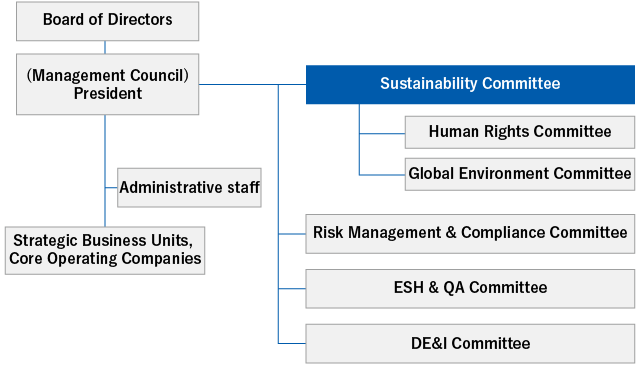 Framework for Sustainability Strategy (as of August 1, 2023)
Framework for Sustainability Strategy (as of August 1, 2023)
Asahi Kasei Group efforts for the SDGs
Transforming our world: the 2030 Agenda for Sustainable Development was adopted by the UN Sustainable Development Summit in September 2015. The agenda includes 17 Sustainable Development Goals (SDGs) and 169 targets such as ending poverty and inequality, and taking action on climate change.
Through its diverse array of businesses and technologies, the Asahi Kasei Group contributes to achievement of the SDGs in accordance with the Group Vision of providing new value to society by enabling “living in health and comfort” and “harmony with the natural environment.”
Asahi Kasei Group's Materiality
In fiscal 2017 we designated the priority issues and subjects to address as the materiality of the Asahi Kasei Group. Since then, as climate change has progressed and sustainability-related trends have accelerated worldwide, we reviewed our materiality in May 2021 and added "Decarbonization" and "Circular economy" as matters of the highest importance.
Identifying Our Materiality
- 1.Identifying Issues
We referred to international guidelines including ISO 26000 and the GRI Standards, as well as the evaluation items used by major ESG evaluation organizations (FTSE, etc.), to identify issues according to the demands of societies and our mission, vision, and values. - 2.Determining the Impact
We assessed the level of impact on both society and the Asahi Kasei Group and mapped it onto two axes. - 3.Evaluating Validity
We confirmed the validity of the plan by examining it from a variety of perspectives, such as through deliberations among divisional managers, discussions with other companies, and interviews with outside directors. - 4.Deliberation and Approval
After deliberation by the Management Council, the proposal was approved by the Board of Directors.
The relationships between this materiality and the sustainable development goals (SDGs) are shown in the following table. We will continue to advance our initiatives while incorporating the perspectives of various stakeholders.
Materiality List
| Theme | Materiality | Related SDGs | Supervising organization (Joint supervision: Sustainability Strategy Planning Department) |
Main KPIs | Target | Results |
|---|---|---|---|---|---|---|
|
Global environment* |
|
Strategic Business Units and Core Operating Companies Corporate Research & Development |
Environmental Contribution Products |
|
|
| Decarbonization | Corporate ESH, Strategic Business Units, and Core Operating Companies Corporate Research & Development |
GHG emissions | FY2030: Reduction of 30% or more (compared to FY2013) FY2050: Carbon neutral |
FY2022: 28% reduction | ||
| Circular economy | Corporate ESH, Strategic Business Units, and Core Operating Companies Corporate Research & Development |
― | ― | ― | ||
| Wastewater | Corporate ESH | Number of accidents involving environmental pollution and number of significant issues | FY2022 Target:
|
FY2022 Results:
|
||
| Industrial Waste | Corporate ESH | ― | FY2022 Target: Reduce industrial waste and promote recycling
|
FY2022 Results:
|
||
| Biodiversity | Corporate ESH | Awareness-raising Activities | FY2022 Target: Promote preservation of biodiversity
|
FY2022 Results:
|
||
|
Health and longevity* |
|
Strategic Business Units and Core Operating Companies Corporate Research & Development |
― | ― | ― |
| Comfortable life* | Strategic Business Units and Core Operating Companies Corporate Research & Development |
― | ― | ― | ||
|
Corporate Governance |
|
General Affairs | Effectiveness assessment and improvement | ― | ― |
| Compliance/sincerity | General Affairs | ― | ― | ― | ||
| Risk Management | General Affairs | ― | ― | ― | ||
| Safety/quality | Corporate ESH/Corporate Quality Ensurance | Major security incidents Disabling injury frequency rate |
FY2022 Target:
|
FY2022 Results:
|
||
| Human rights | Human Resources/Corporate Procurement & Logistics | ― | ― | ― | ||
| Human Resources | Human Resources | ― | ― | ― | ||
| Diversity,equity and inclusion | Human Resources | Proportion of women in managerial positions who play a leading role | Proportion of women working as managers and Group Masters FY2030 Target: 10% |
Proportion of women working as managers and Group Masters June 2023 result: 3.9% |
||
| Number of Group Masters | FY2024 Target: 360 | 2022 Result: 294 | ||||
| Supply chain management | Corporate Procurement & Logistics | Administered CSR Procurement Questionnaire | ― | ― | ||
| Communication with stakeholders | Investor Relations/Human Resources/General Affairs and others | ― | ― | ― | ||
| Community fellowship | Corporate Communications | Amount of activity (in monetary terms) | ― | ― |
- *Contribution through business
Participation in initiatives (major initiatives)
|
Global Compact
|
The Asahi Kasei Group supports the United Nations Global Compact. |
|
Task Force on Climate-related Financial Disclosures (TCFD)
|
TCFD was established by the Financial Stability Board (FSB) in 2017. Asahi Kasei endorses the TCFD Recommendations published by the TCFD and has announced specific initiatives. |
|
GX League
|
The GX League is an initiative led by the Ministry of Economy, Trade and Industry (METI) involving efforts to transform the overall economic system through measures such as decarbonization and carbon neutrality. Asahi Kasei is a member of the GX League. |
|
Challenge Net Zero Carbon Innovation
(Challenge Zero) |
Challenge Zero is an initiative promoted by the Japan Business Federation (Keidanren) in coordination with the Japanese government to support companies and groups in their efforts to achieve a decarbonized society. |
|
Clean Ocean Material Alliance (CLOMA)
|
The Clean Ocean Material Alliance (CLOMA) is a platform established to accelerate innovation by strengthening collaboration among a wide range of stakeholders across industry sectors amid a need to implement worldwide initiatives to overcome the marine plastic litter problem, a global-scale challenge. |
|
Battery Association for Supply Chain (BASC)
|
The Battery Association for Supply Chain (BASC), established as a general incorporated association on April 1, 2021, is an organization engaged in activities such as the international standardization of the battery supply chain (industries related to battery materials, components, and raw materials) and the creation of a battery ecosystem, with the aim of achieving a decarbonized society. |
|
RE100
|
RE100 is an international collaborative initiative consisting of companies committed to running their business operations on 100% renewable energy. Asahi Kasei Homes is a member of this initiative, and it has announced specific targets and is working to achieve them. |
|
Keidanren Biodiversity Declaration Initiative
|
The Keidanren Biodiversity Declaration Initiative is a support effort by the Japan Business Federation (Keidanren) to promote autonomous, active efforts by companies to partake in biodiversity preservation activities, with the aim of achieving harmony between the environment and the economy. |
|
Pinfa (Phosphorus, Inorganic & Nitrogen Flame Retardants Association)
|
Through Asahi Kasei Europe GmbH , its European headquarters, Asahi Kasei has become the first Japanese resin manufacturer to join Pinfa (Phosphorus, Inorganic & Nitrogen Flame Retardants Association), an organization dedicated to improving the safety and lowering the environmental impact of both non-halogenated flame retardants and plastic products that use non-halogenated flame retardants. |
|
Clean Fuel Ammonia Association
|
Ammonia shows promise as an energy carrier for hydrogen. This association aims to establish a value chain from supply to utilization of CO2-free ammonia through technology development/evaluation, economic evaluation, policy recommendations, international collaboration, and other efforts. |
|
Japan Hydrogen Association
|
The Japan Hydrogen Association advances global collaboration in the hydrogen field as well as the creation of hydrogen supply chains. |
|
Hydrogen Council
|
The Hydrogen Council is a global initiative that aims to promote the use of hydrogen to encourage the transition to clean energy for the realization of a sustainable society. As a Steering Member, Asahi Kasei works together with various companies and organizations in the supply chain, helping to promote the use of hydrogen while building a future business. |
|
30by30 Alliance
|
Asahi Kasei and Asahi Kasei Homes are participating in the 30by30 Alliance for Biodiversity, a program established by the Ministry of the Environment to conserve natural environments, with the goal of conserving biodiversity in 30% of Japan’s land and sea areas by 2030. |
|
Business Call to Action (BCtA),
a multilateral alliance led by the United |
Nations Development Programme (UNDP), challenges companies to advance core business activities that contribute to the achievement of the Sustainable Development Goals (SDGs). Asahi Kasei joined with an initiative to support the fiber industry in India through the creation of a comprehensive value chain for Bemberg™ cupro. |
|
Declaration for Partnership Building
|
In 2022, Asahi Kasei endorsed the Declaration for Partnership Building in support of the Council for Promoting Partnership Building to Open Up the Future, promoted by the Cabinet Office, the Small and Medium Enterprise Agency, and other organizations. |
|
White Logistics Movement
|
The White Logistics Movement is aimed at ensuring stability in logistics needed for people's daily lives and industrial activity and contributing to economic growth in response to the truck driver shortage, which continues to intensify. The Ministry of Land, Infrastructure, Transport and Tourism, the Ministry of Economy, Trade and Industry, and the Ministry of Agriculture, Forestry and Fisheries are the advocates of the movement. Asahi Kasei has made a statement of voluntary action endorsing the movement and is working to improve logistics. |
Membership in organizations (main organizations)
| Name of organization | Asahi Kasei's role |
|---|---|
| Japan Business Federation (Keidanren) | Vice Chair Chair of Environment Committee Chair of Committee on Social Security |
| Japan Chemical Industry Association (JCIA) | Director |
Relationships with Stakeholders
The Asahi Kasei Group’s business operations depend on relationships of trust with our stakeholders. We believe that corporate value is raised by understanding the requirements and meeting the expectations of various stakeholders such as customers, shareholders and investors, business partners, local communities, the general public, and employees.
We provide many opportunities for communication to enable our business operations to be improved through dialog with stakeholders.
Communication with stakeholders
| Main stakeholders | Basic premises | Main opportunities for communication |
|---|---|---|
| Customers | We believe that it is by maintaining customer satisfaction and providing reliable and enjoyable products and services that we contribute to society. |
|
| Shareholders and investors | We strive to disclose information in a timely and fair manner to enable our domestic and international investors to gain an accurate understanding of the Asahi Kasei Group. |
|
| Suppliers | A relationship of mutual trust with our suppliers is fostered through fair and principled purchasing practices based on regulatory compliance and respect for the environment and human rights. |
|
| Local communities and the general public | We work to honor and respect the local culture of each community where our operations are based, and to maintain effective dialog and communication with community members. |
|
| Employees | The Asahi Kasei Group considers fulfilling and satisfying working conditions and workplace culture, in which employees feel motivated to achieve and take pride in their career, to be a key to business performance. |
|

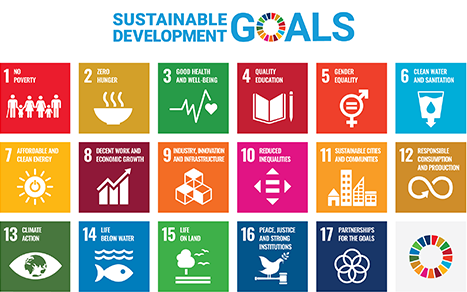
![Highest priority as premise Corporate governance|Compliance/sincerity|Human rights|Safety/quality 【more】Importance for stakeholders 【more】Importance for the Asahi Kasei Group [Business contribution to Global environment (Harmony with the natural environment) Health and longevity (Health and comfort) Comfortable life (Basic activities)] Decarbonization (Harmony with the natural environment) Circular economy (Harmony with the natural environment) Supply chain management (Basic activities) Communication with stakeholders (Basic activities) 【less】Importance for stakeholders 【more】Importance for the Asahi Kasei Group Diversity (Basic activities) Human resources (Health and comfort/Basic activities) Risk management (Basic activities) 【more】Importance for stakeholders 【less】Importance for the Asahi Kasei Group Wastewater (Harmony with the natural environment) Industrial waste (Harmony with the natural environment) 【less】Importance for stakeholders 【less】Importance for the Asahi Kasei Group Biodiversity (Harmony with the natural environment) Social contribution (Basic activities)](/sustainability/management/images/index-img-05.png)
